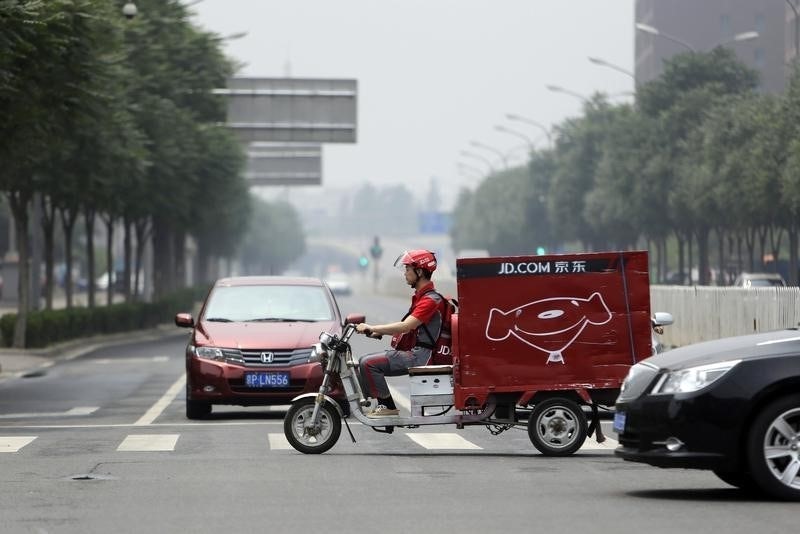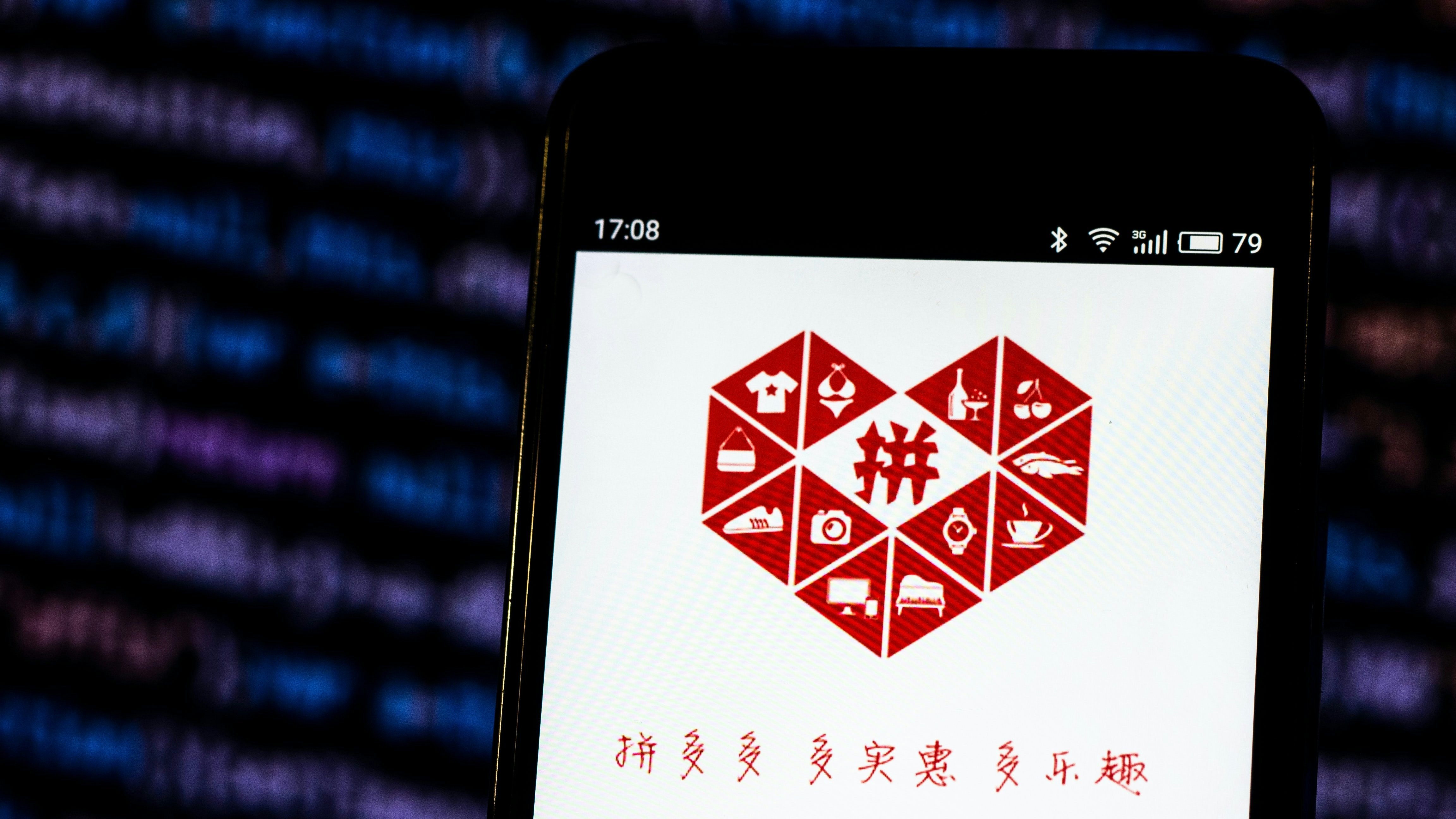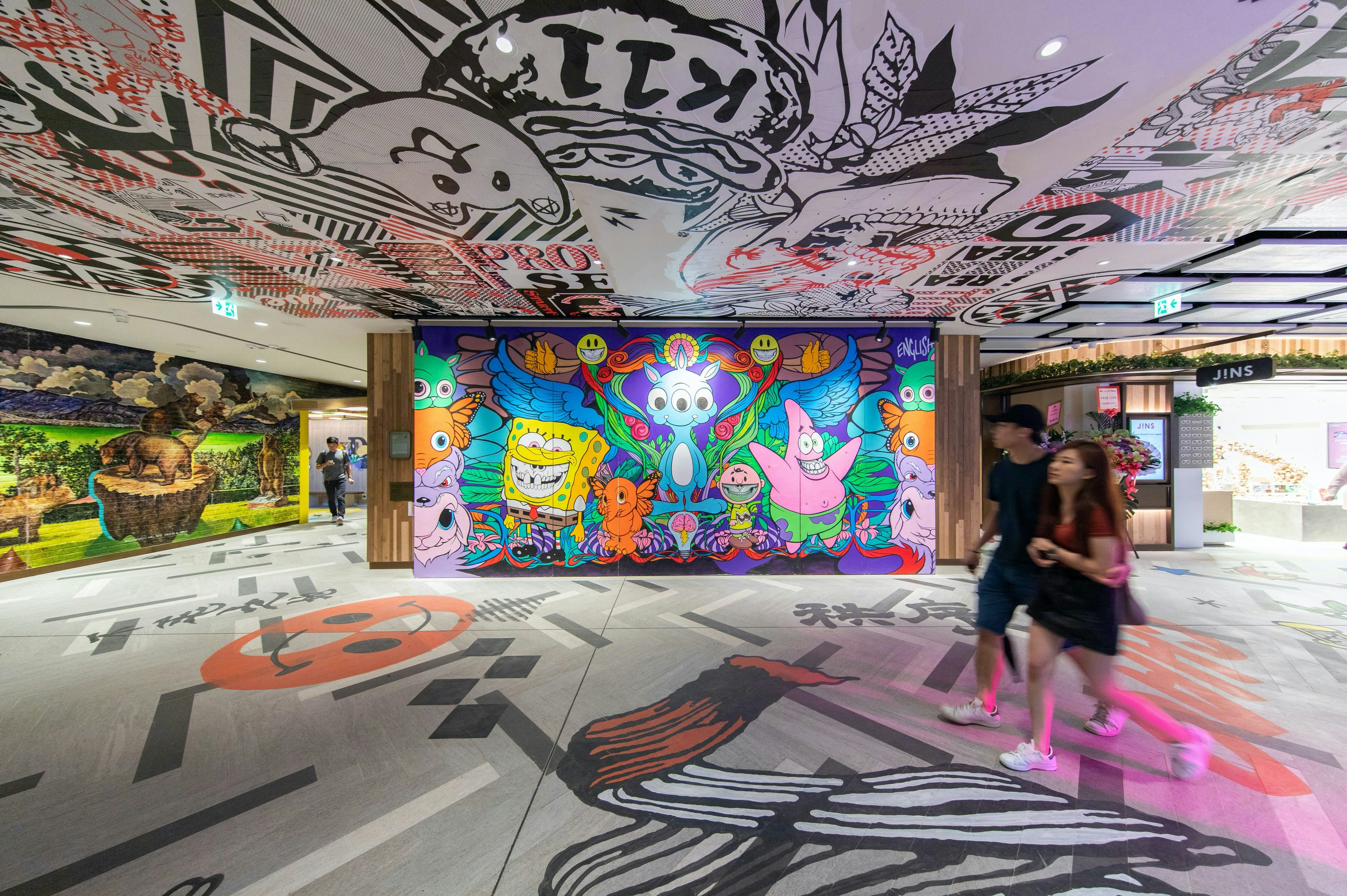No Magic Bullet to Tapping China’s 750 Million Digital Consumers | China Decoded, BoF Professional
In the face of another year of uncertainty, one of the only things we can be sure of is that China will be a vital revenue driver for the fashion industry – and that the country’s booming e-commerce market will be more important than ever.
Last year saw an unprecedented number of international fashion brands, particularly those in the luxury sector, rush to partner with China’s major e-commerce platforms in a bid to broaden their reach in the only major economy to see economic growth in 2020.
High-end and luxury brands as diverse as Cartier, Marc Jacobs, Balenciaga, Chloé, By Far, Chopard and Delvaux all joined either Tmall’s Luxury Pavilion or JD Luxury in 2020. Even Gucci, which had declared itself vehemently opposed to partnering with Chinese platforms on which fakes have traditionally proliferated, joined Tmall last month, capping off a year of surprising new partnerships.
However, other brands have decided to take a slightly different route to reach China’s booming online consumer market by choosing cross-border e-commerce platforms known locally as the haitao business model. Though this usually still means signing a partnership with Tmall and JD.com, it is through their respective Tmall Global and JD Worldwide platforms instead of the main platforms or luxury sub-platforms.

JD.com delivery. Reuters.
International brands that go down the cross-border route don’t need to set up a legal Chinese business entity in order to sell in China; they also don’t need to import a large amount of inventory into the country, instead shipping from overseas or from bonded warehouses in China’s free trade zones. On the surface, it sounds like a far more attractive option for smaller brands that are either unable or unwilling to make a big initial investment in the China market. In reality, there are disadvantages that the tech giants don’t warn brands about in the sales pitch.
When cross-border is the only viable option
E-commerce platforms advertising cross-border e-commerce services often say that their partner brands can be selling to Chinese consumers in a matter of only days or weeks, with minimal hassle and investment. Unsurprisingly, this has caught the attention of many international brands, eager to enter the lucrative Chinese market resulting in a huge surge in cross-border business.
Brands from Everlane to Urban Outfitters and Huda Beauty to celebrity merchandise from the likes of Taylor Swift have all leveraged cross-border e-commerce to sell products to Chinese consumers.
Estimates from iiMedia Research suggest that the value of China’s cross-border e-commerce trade was expected to reach 12.7 trillion yuan ($1.96 trillion) in 2020, with the number of haitao platform users expected to reach 211 million over the same period.
According to Jeff Unze, president of strategic partnerships for cross-border e-commerce app Beyond, which facilitates cross-border sales for retailers including Stuart Weitzman, Moda Operandi, Bloomingdales and Michael Kors, in spite of ongoing pandemic-related logistical issues, the cross-border business has been boosted by Chinese consumers trapped within the Mainland by travel restrictions, a trend expected to continue this year.
The cross-border business has been boosted by Chinese consumers trapped within the Mainland by travel restrictions.
“A huge part of the international fashion market is those international shoppers coming to your Macy’s [in the US] or the Champs-Élysées or London. A lot of those dollars have turned online for those unique products they can’t get in China or that might be in more limited supply in China, so that’s been good for us,” said Unze.
Everlane’s International General Manager, Agustin Farias, said that since the brand opened its Tmall Global store in August 2019, it has accumulated 400,000 fans on the platform with China becoming one of Everlane’s fastest growing international markets.
“At the same time, Tmall Global provides us with valuable insights on what specific products our customers in China are looking for from our global assortment [which will] better shape our offering in the Chinese market in the coming years,” Farias said.
Alibaba is, perhaps unsurprisingly, China’s biggest cross-border e-commerce player having founded Tmall Global in 2014. By 2019, Alibaba had purchased cross-border platform leader Kaola in a $2 billion deal that cemented its position as cross-border front-runner, with more than 60 percent of the total haitao trade falling under its umbrella today, according to Alvin Liu, President of Tmall Import and Export.
Speaking at a press conference kicking off the 2020 edition of Alibaba’s Singles’ Day festival last year, Liu summed up the major selling point of cross-border e-commerce by saying: “With cross border, you just need a business licence in your home country and you can use our technology to reach consumers.”
While it is true that it is much easier to set up a cross-border operation to sell into China than it is to establish an in-country e-commerce operation, that doesn’t mean it’s an “easy” or even a preferable approach for every brand.
The potential pitfalls of the haitao approach
If you were to open Alibaba’s Taobao app on your phone, as hundreds of millions of Chinese consumers do each day, and search for a brand or product, the results from Taobao (a C2C platform), Tmall (a B2C platform), Luxury Pavilion (which specifically houses luxury flagship stores) and Tmall Global (a cross-border platform) are all returned on the same page, so there is no deficiency from a search results perspective, in having a Tmall Global store rather than a normal domestic Tmall store.
However, according to Lily Lu, digital director at Gusto Luxe, a Shanghai-based marketing and digital agency, most brands would prefer to open a domestic Tmall store, versus a Tmall Global store, if they have the budget and ability to do so. But why?
For a start, in-country inventory leads to faster delivery times (an important factor in China, where consumers are accustomed to receiving e-commerce orders within a day or two) and easier returns. Items shipped cross-border can’t be resold within the Chinese market when they are returned, as they haven’t legally been imported for domestic sale, so they must be returned to their country of origin, for example, or sold off as part of a discounted sample sale.
If you can afford to have a domestic Tmall store, of course that would be your priority choice.
“Many brands aren’t choosing Tmall Global; they have to do it because of their size [so] they settle for [that but] if you can afford to have a domestic Tmall store, of course that would be your priority choice,” Lu said, adding that there are specific reasons many beauty brands take the cross-border route, with China in general still requiring imported cosmetics to submit to mandatory animal testing.
This means that for cruelty-free beauty brands, including Fenty Beauty, Charlotte Tilbury and Drunk Elephant, cross-border is essentially the only way they can sell into China without compromising their ethical stance against animal testing. “They have to go through cross-border selling, but it’s not their ideal plan,” Lu claimed.
Fashion is a segment that many believe is less suited to cross-border sales because of sizing complications. This is often a more significant problem for niche international fashion brands selling into China where consumers may not be familiar with an foreign brand’s sizing, combined with the culture of easy returns in China, where a consumer protection law mandates that products can be returned within seven days without reason.
Though many cross-border platforms do offer return solutions, the longer delivery times combined with more complicated returns procedures mean that brands relying on cross-border sales need to be particularly attentive when it comes to customer service, ensuring that the added friction doesn’t leave a bad taste in the mouth of consumers accustomed to speed and seamlessness.
Brands consider balancing both approaches
Lu says that many up-and-coming international brands are looking at initially opening a Tmall Global store to gain some recognition in the China market and test the products that work well in the market, before making the more significant investment in setting up a local entity that can be used to open a store on the domestic Tmall platform.
The trouble is, according to representatives from several brands interviewed by BoF for this story, making that switch isn’t as easy many believe it should be.
One reason for this is Alibaba’s structure which sees Tmall Global and Tmall domestic divided into separate teams competing for business. The internal rivalry means that it isn’t necessarily in the best interest of Tmall Global to give up their clients to a competing division. BoF reached out to representatives from Alibaba with questions about the difficulties brands contend with when switching between Tmall Global and domestic operations, but they declined to comment.
The 400,000 fans Everlane has accumulated for their Tmall Global store would reset to zero should they switch to a Tmall domestic store.
Even when Tmall Global brands do successfully make the switch to Tmall domestic, the fans and followers from their Tmall Global store don’t automatically come with them. In other words, the 400,000 fans Everlane has accumulated for their Tmall Global store, would reset to zero should they switch to a Tmall domestic store, said Josh Gardner, chief executive of Kung Fu Data, an e-commerce partner specialising in data analytics.
Such barriers have put some brands in the position of considering operating both domestic and cross-border e-commerce operations selling to China, if they have the budget to do so and have set up a legal Chinese business entity for the domestic e-commerce operations. This entails using different price points, delivery times and return policies, sometimes for the same products.
One of the main drivers of the cross-border trend is price difference, with fashion and beauty products from overseas remaining cheaper, in general, than those purchased on the mainland. Though price differences have been “harmonised” to a certain extent over the past five years by the lessening of duties for some product categories and by brands themselves in other cases, there is still a discernible difference, especially if prices are listed side by side in search results for the same product being offered on both Tmall and Tmall Global.
Factoring in the daigou dimension
Cross-border e-commerce has been propelled forward in recent years by the same trends that led to the emergence of the multi-billion-dollar grey market daigou trade — including price differentials and an explosion of social media use — meaning consumers in China are exposed to more international brands and products, even those not available for sale on the Mainland.
One of the main reasons Jeff Unze believes international brands would be smart to consider using a combination of cross-border and in-country for the Chinese market, is that doing so could help eliminate or at least diminish the daigou trade for their brand.
“If you want to control that grey market, the best thing you can do is offer an official cross-border channel [yourself],” he said.
If you want to control that grey market, the best thing you can do is offer an official cross-border channel yourself.
Unze describes the cross-border consumers as a special breed: one out of every five Chinese customers prepared to wait five to ten days to get a product that might not be available locally, or that might be less expensive than the in-country version, meaning sales to this group don’t usually cannibalise China sales. They do, however, cannibalise the daigou resellers customers would turn to if brands aren’t offering them a direct method of purchase.
The best approach to any brand’s Chinese e-commerce operations will be determined by a number of factors including company size, category and budget. While cross-border selling certainly has its uses, and in many cases might be the only option for brands without the budget to do a domestic China e-commerce set up, there are major advantages in embracing the latter, even with its added initial financial investment.
The question brands have to ask themselves is not what might prove the easiest solution today, but what will provide the best chance of long-term success in a market that will only become more important for fashion and beauty brands in the years to come.
时尚与美容
FASHION & BEAUTY
Actress Zheng Shuang in Prada’s latest Chinese New Year campaign. Prada.
Luxury Brands Largely Keep Chinese New Year Collections Classy
With February 12 marking the first day of the lunar new year of the ox, almost all the world’s major luxury brands have unveiled their limited edition Chinese New Year collections, largely avoiding the cultural missteps that have plagued international brands in years past. Some brands, including Dior, focused on elements other than the new year’s zodiac sign, releasing a collection high on flirty femininity, heavily featuring hibiscus flowers (also known as the Chinese rose) on handbags, T-shirts, and tulle dresses, exclusively available in China. The starring items of Prada’s Chinese New Year campaign, meanwhile, are new bag lines the brand is hoping will cut through with the Chinese market, the Cleo for women and the Spazzolato cross-body bag for men. Burberry’s tartan gets a subtle, ox-inflected makeover on limited edition Chinese New Year products and Louis Vuitton has the most overt references to the zodiac, with cartoon cow heads adorning bubble-gum pink accessories.
China Waste Ban Threatens Fashion Sustainability Moves
A ban on solid waste imports into China could lead to supply disruptions and price increases. Restrictions on all materials classified as “solid waste” including recycled fibre, came into effect on January 1, threatening the import of high-end recycled polyethylene terephthalate (PET) flakes, which are used in the production of functional fabrics and footwear. A significant percentage of these product categories are produced in China, while the use of recycled fibres has been a key pillar in the sustainability goals of the fashion and footwear industries. Adidas, for example, aims to use only recycled polyester for its products by 2024. For now, importers are suspending their imports and waiting for clarification about whether high-quality PET flakes might be given an exemption to the ban. (Just Style)
Sequoia Capital China Takes Majority Stake in Ami
Sequoia Capital China has strategically invested in French designer brand Ami, with the aim of further globalising the 10-year-old fashion label’s business, according to a post on Sequoia Capital China’s official WeChat account. The investment will make Sequoia Capital China the “controlling shareholder” of Ami, though financial details of the deal remain undisclosed. Founder and creative director Alexandre Mattiussi and CEO Nicolas Santi-Weil retain their respective roles. An obvious advantage of bringing a Chinese partner on board for fashion brands such as Ami is their expertise in the lucrative China market, which remains the biggest driver of growth in the fashion and luxury segments. (Sequoia Capital China WeChat)
科技与创新
TECH & INNOVATION
Pinduoduo app. Shutterstock.
Chinese Tech Companies Under Scrutiny Following Employee Deaths
Group-buying e-commerce platform, Pinduoduo, which has been one of China’s best-performing tech companies in recent months, has failed to escape negative press in the early weeks of 2021. Two young employees have died, with the deaths linked to a company culture that mandates overwork and high performance targets. Their deaths, and the subsequent firing of another Pinduoduo employee who says he was let go for posting photos on social media alluding to company’s culture of long work hours, have ignited debate in China about the “996” culture common at many Chinese tech companies (referring to the expectation that employees work 9am to 9pm, six days per week). The market has responded by wiping 8 percent off Pinduoduo’s stock price in the past week. Also this week, a courier working for Alibaba-owned food delivery service Ele.me set himself on fire in the eastern Chinese city of Taizhou after a pay dispute. His case highlights the precarious economic position facing many employees that are driving China’s boom in e-commerce and on-demand services. (Sixth Tone / Financial Times)
Secoo Founder Looks to Take Company Private
US-listed Chinese luxury e-commerce platform Secoo has received an offer from its founder, chairman and chief executive, Li Rixue, to take the company private. The platform, which counts international fashion houses such as Prada, Balmain and Roger Vivier among its brand partners and markets itself as an exclusive online home for luxury, first listed on the Nasdaq in 2017 and has seen its share price fall more than 70 percent since listing. The preliminary proposal would see Li Rixue and his affiliates acquire all the issued and not-held Class A common shares with a cash offer of $3.27 per American Depositary Share. As of the close of market on January 11, Secoo’s stock price was $2.96, giving it a total market value of $209 million. (China IPO)
Video Sharing Platforms Ready for Blockbuster Hong Kong IPOs
Kuaishou Technology and Bilibili, two of China’s hottest video content media platforms, will list on the Hong Kong stock exchange in the coming month, raising billions of dollars in the process. Kuaishou is readying a $4 to $5 billion initial public offering (IPO) before mid-February, while Bilibili has applied to the Hong Kong stock exchange to raise roughly $3 billion via a secondary listing in the city. ByteDance is also mulling floating Douyin, the domestic version of its TikTok app, people familiar with the matter said. (South China Morning Post)
消费与零售
CONSUMER & RETAIL
A couple walks through graffiti art at K11 Musea. K11.
K11 Launches New Mall in Wuhan, Sees Sales Rebound in Hong Kong
K11 Group has announced a 45 percent increase in sales year-on-year for the second half of 2020. The company’s Hong Kong malls reported a 56 percent increase in sales for the second half compared the same period in 2019, despite a continued decline in retail sales in Hong Kong overall. This news comes less than a month after the group, known for its collection of “art malls” around China and Hong Kong, opened its latest outlet, in the buoyant luxury market of Wuhan, where consumption and tourism has bounced back impressively following the city’s long-lasting lockdown following the emergence of Covid-19 there at the beginning of 2020. (Hong Kong Business)
Inditex to Shut China Stores for Bershka, Pull&Bear and Stradivarius Brands
Fast-fashion giant Inditex plans to shut all physical outlets of its Bershka, Pull&Bear and Stradivarius brands in China soon, according to local media reports. Customers will still have access to the brands via their official websites and Tmall stores. Other brands under the Inditex umbrella, including Zara, Massimo Dutti, Oysho and Zara Home are unaffected by the shutdowns. Bershka, Pull&Bear and Stradivarius have already drastically cut store counts in China’s first and second tier cities over the past 12 months, from a total of more than 150 stores only about 30 remained at the dawn of 2021. (Sina Fashion)
政治,经济与社会
POLITICS, ECONOMY, SOCIETY
Beijing daily life amid the Covid-19 pandemic. Getty Images.
Tensions High in China Following First Covid-19 Death in 8 Months
The country reported its first Covid-19 death since May and has evacuated thousands of residents in high risk areas within Shijiazhuang, Hebei’s provincial capital, to a quarantine facility. With an average of between 50 and 100 new cases of Covid-19 emerging in China each day — the clear majority of them limited to Hebei, which neighbours Beijing in the country’s northeast — China’s pandemic problems are far less serious than other those facing other countries. But in the lead up to the Chinese New Year holidays, which this year run February 11 to 17 and is traditionally China’s busiest travel period, authorities are obviously anxious about the possibility of virus spreading and have advised people to stay where they are, rather than traveling to their home towns for the New Year. Banquets, parties and visits to popular holiday areas will also be subject to more restrictions. Chinese New Year is also a major shopping and gifting occasion and retailers will be nervous that travel limitations (and perhaps also more stringent rules about gathering in public places) will also impact footfall for malls and shopping centres around the country. (SCMP, Xinhua)
Comedian Yang Li Ruffles Feathers With Stand Up Act
Yang Li, a comedian who found fame on a reality stand-up comedy competition show telling jokes about men and their egos, has come under fire from China’s nascent men’s rights movement, which claimed online that it planned to send a letter of complaint to media regulators about her routine. The letter accuses her of “insulting all men” and “propagating hatred.” The punchline that has set off the fiercest online debate is: “How can he look so average and still have so much confidence?” Which has become a regular reference for women posting on social media since Yang’s routine first aired last summer. Women in China are becoming increasingly vocal about pressing for their rights. In the last month, hundreds of people gathered outside a Beijing court in support of a former intern who brought a sexual harassment lawsuit against a prominent TV host, and a pop singer caused a stir by singing about domestic violence on live television. (The New York Times)
China Decoded wants to hear from you. Send tips, suggestions, complaints and compliments to our Shanghai-based Asia Correspondent [email protected].




